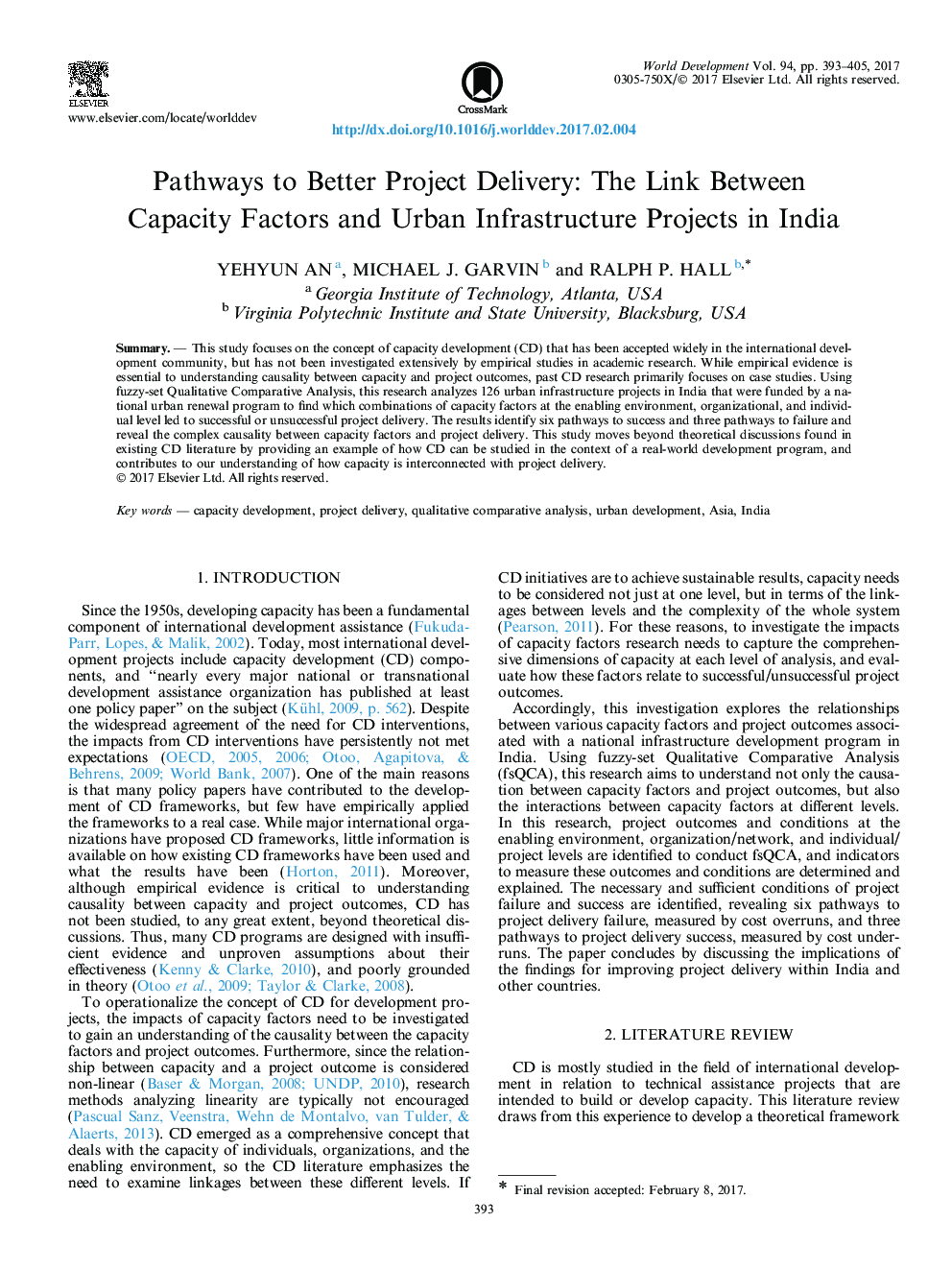| Article ID | Journal | Published Year | Pages | File Type |
|---|---|---|---|---|
| 5105224 | World Development | 2017 | 13 Pages |
Abstract
This study focuses on the concept of capacity development (CD) that has been accepted widely in the international development community, but has not been investigated extensively by empirical studies in academic research. While empirical evidence is essential to understanding causality between capacity and project outcomes, past CD research primarily focuses on case studies. Using fuzzy-set Qualitative Comparative Analysis, this research analyzes 126 urban infrastructure projects in India that were funded by a national urban renewal program to find which combinations of capacity factors at the enabling environment, organizational, and individual level led to successful or unsuccessful project delivery. The results identify six pathways to success and three pathways to failure and reveal the complex causality between capacity factors and project delivery. This study moves beyond theoretical discussions found in existing CD literature by providing an example of how CD can be studied in the context of a real-world development program, and contributes to our understanding of how capacity is interconnected with project delivery.
Keywords
Related Topics
Social Sciences and Humanities
Economics, Econometrics and Finance
Economics and Econometrics
Authors
Yehyun An, Michael J. Garvin, Ralph P. Hall,
